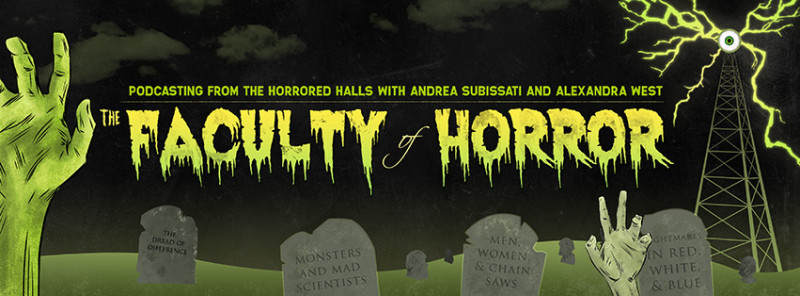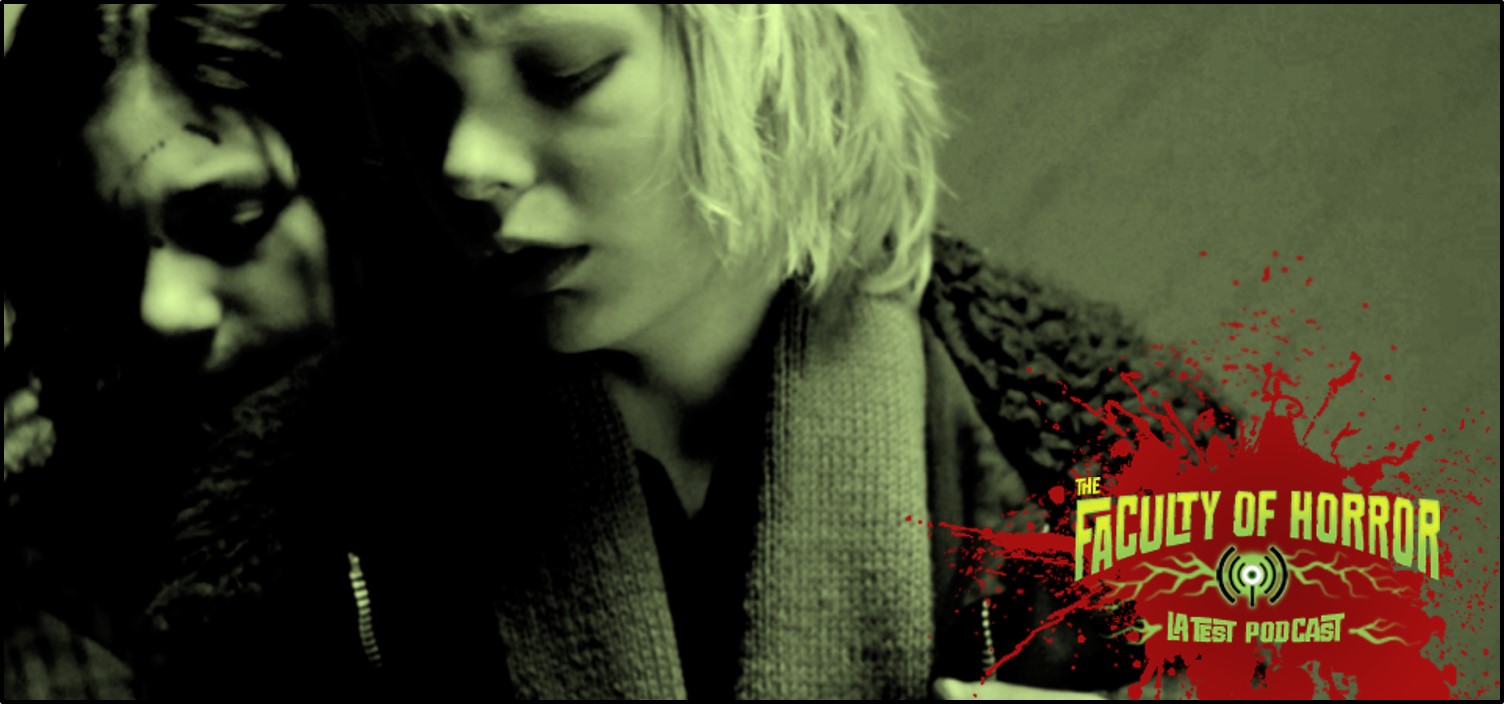Winter is upon us again and what better way to embrace the cold than an exploration of Tomas Alfredson’s beloved contemporary genre classic, Let the Right One In? Alex and Andrea discuss the ties that bind and why blood is thicker than knitwear.
REQUIRED READING
Let the Right One In. Dir. Tomas Alfredson, 2008.
EXTRA CREDIT
Let the Right One In – The AV Club’s exploration of the book to film to remake journey of Eli and Oskar.
The National Theatre of Scotland – The trailer for their production of Let the Right One In.
Podcast: Play in new window | Download


So this was such a great episode I had to go back and watch the movie with director/writer commentary on (does the Anglo version have those?) So a few thoughts by someone who actually lived through the 80s in Sweden:
1) Just for the record re: high taxes and so on, given the always-prevalent discussion of socialist nightmare etc, by 1982 Sweden had been run by a conservative/liberal coalition for 6 years, which… Swedes are conservative for the social democratic welfare state of the 60s. The modern version of Sweden is built on the idea of solidarity and community – which, ironically, becomes almost impossible in the housing projects in the suburb that the welfare state built, where everyone is boxed into their own apartments, separated from each other.
2) For a Swede, this is such a perfect period piece. They’ve really worked hard to not only recreate the early 80s, but include a bunch of really iconic brands, sounds and images. Singer/songwriter Per Gessle (most well-known to international audiences as half of Roxette) recorded a brand-new song in the style of his early-80s band for the scene where Oskar is in his room listening to music. They didn’t want to use an actual early 80s song since that would take people out of the movie – it’s not set in the early 80s, it’s set in these early 80s.
3) Having Per Ragnar play Håkan is delicious irony for Swedes. In the 80s, he was a feel-good TV host, or more specifically THE feel-good TV host since there were only 2 TV channels; now here he is as a paedophile serial killer vampire minion. Ika Nord, who plays Virginia, hosted a children’s programme in the 80s. Basically, the casting director had our childhoods come back to literally haunt us.
4) The movie is set in Stockholm (thanks for noticing that, far too many non-Swedish viewers assume it’s set in a small town somewhere in the far north), but most of it is filmed 1500 km to the north since we don’t get those winters anymore in Stockholm.
5) One reading I don’t think you brought up is the religious take on Håkan/Eli, that he basically literally idolizes her; his first words to Eli are “Forgive me”. Eli, eli, lama sabachthani…
6) “We work a lot with windows, doors, membranes, walls, glass… things that separate people.” This is then contrasted by the scenes where they very deliberately show Eli and Oskar getting closer to each other and touching hands, and the way they keep showing the kids in extreme close-up (so close-up they couldn’t even put make-up on them).
7) Re: the gym teacher – yeah, he fucks up, but he’s also very much an outsider trying to understand what’s going on, trying to fit in without ruffling any feathers. A hispanic (presumably either Spanish or Chilean) immigrant in early 80s Sweden, pointedly the only non-ethnic-Scandinavian in the whole snow-covered movie? He’s one of a kind, very lonely. Again, everyone’s separated from each other.
8) Re: Oskar’s father’s guest: “Foreign audiences imagine that this is some sort of lover of the father. That never once occurred to me.” “The idea of just walking in and asking ‘Do you have any booze?’ is a very Swedish thing.” (Not that I don’t approve of your reading – ambiguity is built into this movie at every step, and it certainly works with Oskar’s pre-sexual-awakening outsiderness.) “Oskar’s look at his father – I’ve watched this movie hundreds of times, I only just stopped crying at that.”
9) The moral of the whole story: “Try to be nice to each other, don’t pour acid in your face, and never try to make a movie where you have to direct cats.”
Anyway, thanks a lot for doing this episode. I love this movie (and the novel, flaws and all) and it was great to hear my favourite podcast find new angles on it.
…meant to add on #5; this deification does not bode well for Oskar’s future, however much they seem to honestly care for each other by the end.
I don´t think the sandals is mean´t to indicate that the guy is gay.
Tomas Alfredson the director is part of the Swedish comedygroup “Killinggänget” or “Goat-Kids-Gang” and you could say they are Sweden´s Monty Pythons and this sounds like something they would think is really funny showing an old man in sandals.
And like Bjorn said they are probably heavy drinking buddies this is very common in suburbian Stockholm and out through the country. We really like our alcohol here…
Also i wanted too make you guys aware that the author of the book and screenplay relesed a collection of shortstories called “Let the Old Dreams Die” and in that book he had a follow up story telling what happend to Oskar and Eli after getting of the train.
I haven´t read it so i know no more but it is available in english according to Wikipedia.
Having read the book, let me fill in a little about Håkan. He’s a pedophile that is attracted to young boys. He has always seen Eli as a boy, as Oskar sees Eli as a girl. But, Håkan first meets Eli just before they move into the apartment complex. They come up with an agreement that he would provide her with victims and protection. He is hoping that Eli would consent to something sexual between them. The first kill he does in the film is his first kill ever. He screws it up based on his experience. Håkan has the attraction, but has never played upon it. He wants the child to consent to sex; he does not desire to force this on to a child.
I only saw it once, but I found that LET ME IN is a quite passable remake. Of course, I’m likely to rewatch the original (which I’ve only seen once).
Kind of funny how those comments about this being a “Swedish story” can also be applied to THE GIRL WITH THE DRAGON TATTOO and I’ve dismissed David Fincher’s remake after a single viewing in favour of the original.
I agree Let Me In is one of the worst remakes of a film I really appreciated (Spike Lee’s Oldboy running a close second).
Thank you for another great episode and cheers for five years (and counting) of excellence. When I first saw Let the Right One In (during its initial release) it played as a midnight film at my local theater. Having seen a lot of vampire films I probably expected brain candy, instead we were confronted a subtle, yet intensely powerful, coming-of-age narrative in which the monsters of the narrative are not always clear. I was working with Mikhail Bakhtin’s concept of “ideological becoming” and when I slept that night I dreamt about the film in relation to the concept. I woke in the early dawn of the morning and sketched out some thoughts about the films http://internationalfilmstudies.blogspot.com/2014/09/michael-dean-benton-be-me-for-awhile.html
Thanks again!
Y’all need to read “Let the Old Dreams Die” or at least the part where they talk about what happened to Eli and Oskar. Love how the author didn’t make a direct sequel.
I wasn’t that impressed when I first watched this film after hearing so much hype about it. I actually came to appreciate it more after watching this video explaining why the remake is worse:
https://www.youtube.com/watch?v=aoIJzsyTxJg